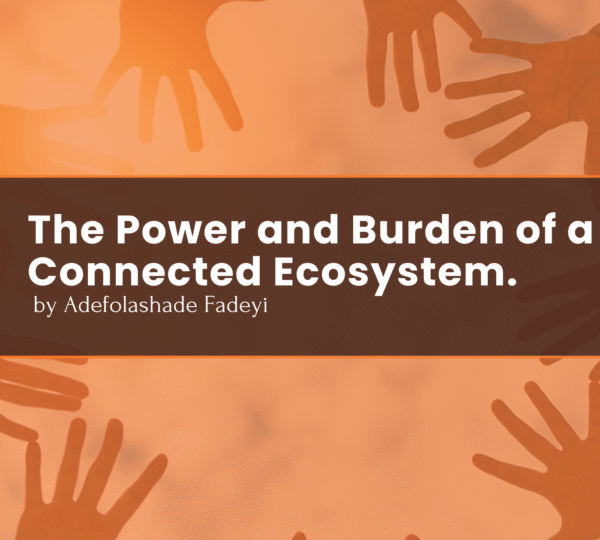The Power and Burd en of a Connected Ecosystem.
en of a Connected Ecosystem.
The truth we need to confront: Ecosystems, not just homes, shape teenagers
No teenager grows up in isolation. They are formed and influenced by a web of ecosystems that surrounds them daily:
home
school
faith-based communities
peer groups
digital environments
extracurricular and social spaces
This network is what we call a connected ecosystem: a system of systems that together define what a teenager sees, hears, absorbs, and becomes.
The power of a connected ecosystem
When each ecosystem is aligned, a teenager thrives.
The values they hear at home are reinforced by mentors at school, role models at church, and even the kind of peers they attract.
In a strong ecosystem:
- Identity is reinforced
- Belonging is consistent
- Growth is supported from every direction
This is the power of a connected system – it multiplies positive impact and creates momentum for flourishing.
And there is the burden of a connected ecosystem
When systems are misaligned, or worse, harmful, even the most well-grounded teenager begins to drift.
Meet Ada.
Smart. Polite. Curious.
She came from a strong, supportive home. Her parents were present, intentional, and deeply invested in her growth.
But something had shifted.
Ada was pulling away. Her confidence was shaky. Her decision-making became reactive. Her sense of self began to blur.
When she was off at her new school, where she felt out of place and thought of settling in with others to find a sense of belonging.
What happened?
The home system was solid. But the other systems around her were not.
A child can be raised with love and structure at home… and still suffer from the influence of a disempowering classroom, toxic peer circle, unfiltered media feed, or emotionally absent faith community.
When just one system fails, the others feel it.
And often, the teenager bears the weight.
That is the burden of a connected ecosystem.
And that burden doesn’t just affect the teen; it falls heavily on their parents, mentors, teachers, and community.
And it hits harder for parents, especially working parents, who have to put out fires
Parents, especially those juggling demanding careers, often rely on schools, churches, extended family, and youth programs to be extensions of their values.
But when those systems are under-equipped or misaligned, parents are forced to overcompensate. They stretch themselves thin, trying to plug every gap and protect their child from invisible harm.
The result?
Burnout, guilt, fear, and still, gaps remain.
This is why we must be intentional
You can’t raise a teenager with only one strong system.
We need ecosystems that are designed, not left to chance.
Every space that interacts with a teenager, classrooms, digital platforms, homes, sports teams, and youth ministries, must take ownership of its influence and responsibility.
We need systems that are aware, equipped, and aligned.
This is why ADF exists
At ADF Consulting, our work focuses on strengthening the environments that shape teenagers.
- We help the people and places in a teen’s ecosystem become stronger, clearer, and more connected.
- We audit schools, youth programs, faith-based orgs, and parenting structures
- We identify gaps, strengths, and silent threats
- We help build systems that nurture growth, protect identity, and support resilience
Because no teenager should have to carry the cost of a broken system.
When we strengthen the ecosystem, we build a generation that is grounded, future-ready, and whole.

Visit adfconsulting.co/systems-audit to learn more or send us a message to get started.
Let’s stop waiting for change and start designing the systems that raise the next generation.
